Research
Center for Brownfields Research and Redevelopment
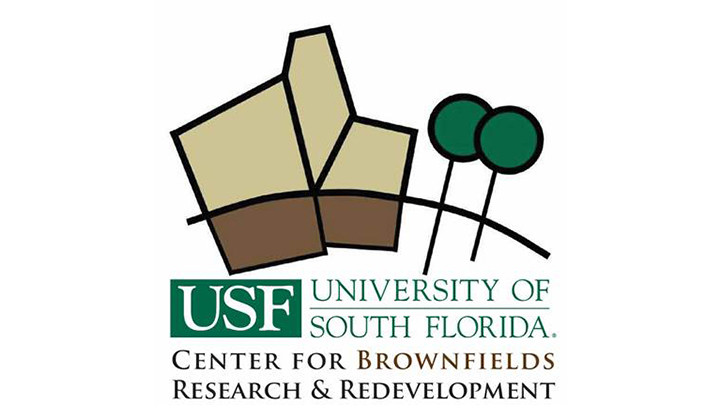
About
The Center for Brownfields Research and Redevelopment at the University of South Florida was established in 1998 by an act of the Florida Legislature (Florida Law, Ch. 240.5321). Our mission is to leverage interdisciplinary scientific expertise at the University of South Florida to inform outcome-driven research on environmental contamination, community health, and economic development. The three main goals of the Center are: 1) Engagement…with community partners to identify problems and context-sensitive solutions; 2) Convergence…of multiple perspectives, voices, and approaches for holistic and outcome-driven scientific research; and 3) Translation…of scientific findings for community impact.
“Brownfields” are properties whose redevelopment is complicated by their land use history that may have resulted in contamination or pollution. The U.S. Environmental Protection Agency estimates that there are nearly half a million brownfields in the U.S., many located in low-wealth communities. Research demonstrates that residents of communities with brownfields have disproportionately higher levels of heart disease, cancer, asthma, and infant mortality compared to communities without brownfields challenges. Empowering stakeholders to transform brownfields into “healthfields” (former brownfield properties that have been redeveloped to improve access to healthcare and healthy living) is therefore key to social, economic, and environmental sustainability in these areas.
Assessing and redeveloping brownfield sites requires a range of expertise, including knowledge of historical land use, ability to conduct soil and water testing and other environmental assessments and cleanup activities, expertise on health impacts and hazardous waste disposal, and the ability to engage communities and other stakeholders in planning and designing a property’s re-use. The USF Center for Brownfields Research and Redevelopment leverages the scientific expertise of many disciplines (e.g., anthropology, environmental engineering, public health, environmental science, public policy/planning, economics) for studying brownfield challenges across Florida, emphasizing applied and participatory research on issues pertaining to community health and economic development.
Listen to our podcast about brownfields on AnthroAlert
People
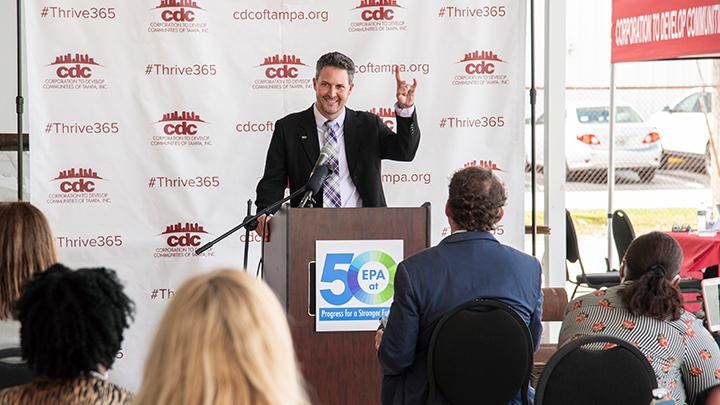
Director
Dr. E. Christian Wells is the Director of the Center for Brownfields Research & Redevelopment (since 2015) and Professor of Anthropology at the University of South Florida, where he has served as the Founding Director of the Office of Sustainability and as Deputy Director of the Patel School of Global Sustainability. He is an applied environmental anthropologist with research expertise in sustainable and equitable development, community and stakeholder engagement, brownfields, (waste)water infrastructure systems, and science-policy interactions. He has published over 100 books, articles, chapters, reviews, and reports, and his research has been covered by various media outlets, including The New York Times and New Scientist, among others. He recently received the Black Bear Award by the Sierra Club of Tampa Bay “in recognition of outstanding dedication to sustainability and the environment.”
Former Directors
Elizabeth Strom, 2013-2015
Robert Brinkmann, 2008-2009
Renu Khator, 1998-2000
Student Research Associates
Marlena Antonucci, Department of Art History (2015-2017)
Richard Bargielski, Department of Anthropology (2018-2020)
Kris-An Hinds, Department of Anthropology (2017-2019)
Gabrielle Lehigh, Department of Anthropology (2016-2018)
Olivia Sciandra, Department of Anthropology (2019-2021)
Abby Vidmar, Department of Anthropology (2020-2022)
Faculty Affiliates
Nicholas Albergo, Department of Civil and Environmental Engineering
Kamal Alsharif, Environmental Science and Policy
Julie Baldwin, Public Health
Stephen Buckman, School of Public Affairs
Jeffrey Cunningham, Department of Civil and Environmental Engineering
Joseph Dorsey, College of Global Sustainability
Sarina Ergas, Department of Civil and Environmental Engineering
Trent Green, Department of Architecture
Mark Hafen, School of Public Affairs
Sharon Hanna-West, College of Business
Valerie Harwood, Department of Integrative Biology
Shawn Landry, Water Institute
Evangeline Linkous, School of Public Affairs
James Mihelcic, Department of Civil and Environmental Engineering
Kai Rains, USF Water Institute
Elizabeth Strom, School of Public Affairs
Amy Stuart, Public Health
Maya Trotz, Department of Civil and Environmental Engineering
Adewale Troutman, Public Health
Joshua Wilde, Department of Economics
Kristine Williams, Center for Urban Transportation Research
Rebecca Zarger, Department of Anthropology
Research
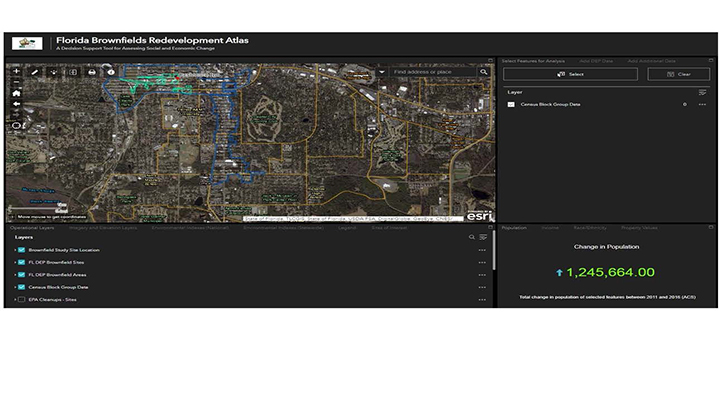
The Florida Brownfields Redevelopment Atlas: A Decision Support Tool for Assessing Social and Economic Change
This project developed a new analytical tool to inventory and assess social and economic changes associated with brownfield sites that have benefited from the EPA’s State and Tribal Response Program (SRP) administered by the Florida Department of Environmental Protection (FDEP).
Both the U.S. EPA and the FDEP would like to better understand the impacts of SRP funding provided to eligible communities who have demonstrated a need for funding assistance for assessment and remediation work in advance of planned brownfields redevelopment. The FDEP manages the work through either Targeted Brownfield Assessments (TBA) or Site-Specific Assessments (SSA) and/or remediation activities with the intent of gaining regulatory closure in advance of planned development. To determine the social and economic impacts associated with redeveloped brownfield sites across Florida where cleanup activities were funded under the SRP Grant, we developed a novel spatial analytical tool that takes the form of a geographic information system (GIS) accessible through an online platform.
The GIS tool allows users to select a specific area, such as a TBA/SSA property with a radius of two city blocks, and then compare historical and contemporary data, noting increases or decreases in each factor over a particular period. The tool allows for multiple, simultaneous comparisons of both social and economic characteristics, including, for example, demographic and other data from the American Community Survey, property values, tax records, crime statistics, and aggregate community and public health data for census block groups. The project is currently evaluating the efficacy of the tool through site assessment at various brownfield redevelopment sites throughout Florida.
Redevelopment
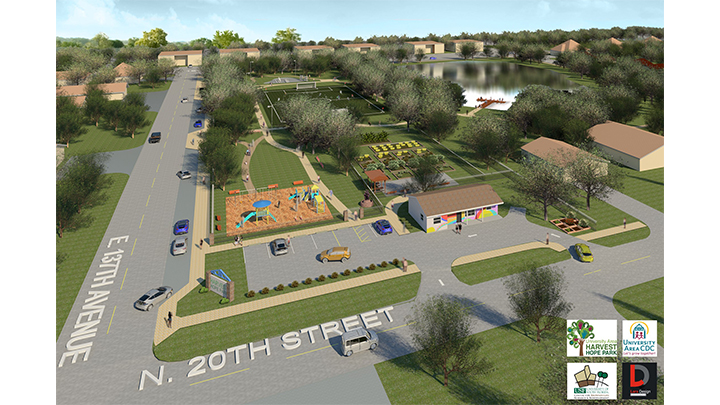
EPA Brownfields Area-Wide Planning for the University Area Community
This EPA Brownfields Area-Wide Planning project (2017-2019) focuses on the University Area Community (UAC), a neighborhood located in unincorporated Hillsborough County on the northern edge of the City of Tampa, Florida. The UAC is an underserved community characterized by low incomes, high unemployment and poverty rates, and disproportionately high levels of child morbidity compared to surrounding regions. The area is predominantly residential and commercial, and contains many vacant lots, some of which are perceived by residents to be contaminated by environmental pollutants. Faculty and students from the University of South Florida (USF) are working together with this community and other stakeholders to develop a brownfields area-wide plan and implementation strategy for the neighborhood.
The project builds on existing planning activities that the community has already developed for housing rehabilitation, new business creation, increased access to health services, and improved opportunities for recreation. The project focuses on brownfields that are a major impediment to these redevelopment considerations, particularly the Harvest Hope Park catalyst site. Project activities include community engagement, local capacity building, an economic market analysis, and evaluation of existing planning documents along with social, health, and environmental data to determine the extent to which contamination will impact revitalization efforts.
Key partners that are working with USF include the Florida Brownfields Association, the University Area Community Development Corporation (a community-based nonprofit organization in the UAC), Mort Elementary School (located in the UAC), Environmental Protection Commission of Hillsborough County, Florida Department of Health, Hillsborough County Economic Development, Hillsborough County City-County Planning Commission, and three private consulting and social marketing firms located near the UAC.
For more information:
Read the full report
USF Awarded EPA Grant to Help University Community Area Plan New Uses for Former
Brownfield Sites. USF News, January 12, 2017.
Abandoned Properties Near USF Hurting Development: New Efforts to ‘Fight the Blight.’
WFTS/TV ABC News Channel 7, Tampa, February 16, 2017.
Education

Please click here to register for the program or for more information.
Environmental Workforce Development and Job Training Program
This Environmental Workforce Development and Job Training Program focuses on the historically African-American community of East Tampa, an underserved and under-resourced urban neighborhood of approximately 40,000 residents in Tampa, Florida. This ca. 90% minority community is characterized by low incomes, high unemployment and poverty rates, and disproportionately high numbers of brownfields and polluting industries compared to the rest of the city. Our EWDJT program is a public-private-nonprofit partnership bringing together the Corporation to Develop Communities of Tampa with the USF Center for Brownfields Research and Redevelopment along with collaborators in municipal and county governments, nonprofit organizations, and environmental consulting firms and businesses. The greater goal of the partnership is to help unemployed and under-employed residents develop the skills and earn the certifications necessary to secure full-time careers in environmental and brownfields remediation.
For more information:
USF, CDC of Tampa team up on job creation program with a focus on East Tampa, Tampa Bay Business Journal
EPA Announcement: Applicants Selected for FY20 Environmental Workforce Development and Job Training Grants
Contact
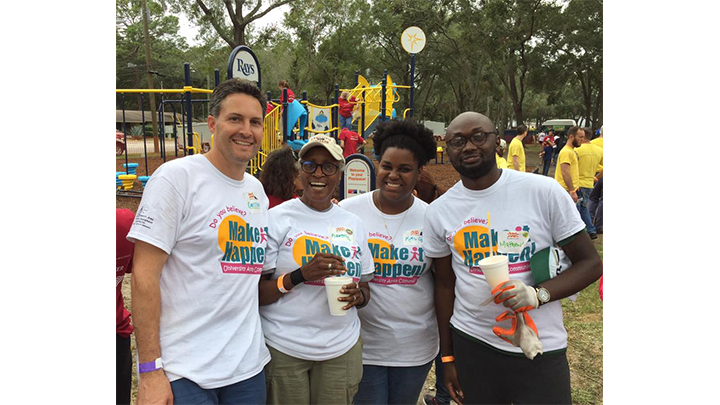
Center for Brownfields Research & Redevelopment
University of South Florida
4202 E. Fowler Ave., SOC 107
Tampa, FL 33620-8100 USA
Phone: 813/974.2337
Fax: 813/974.2668
Email: ecwells@usf.edu
Web: http://usf.edu/brownfields